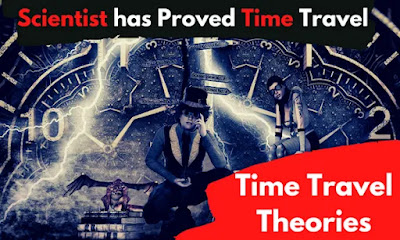Through the years, many theories about time travel have circulated. Some of these theories are more scientific than others, but all of them offer a unique perspective on the concept of time travel. In this blog post, we will explore some of the more popular time travel theories out there. So sit back, relax, and let’s take a journey through time…
What is Time Travel?
There are many theories about time travel, but the most popular one is the idea of a space-time continuum. This theory states that time is not a linear concept, but rather it is a fourth dimension that is intertwined with the three dimensions of space. According to this theory, time travel is possible because it is not constrained by the traditional laws of physics.
Other theories about time travel include the idea of parallel universes, or alternate timelines. These theories suggest that there are multiple universes existing side by side, and that it might be possible to travel to these other universes. Some even speculate that time travel might be possible within our own universe, but this has yet to be proven.
Regardless of which theory you believe, the idea of time travel is fascinating. It raises questions about the nature of time and reality, and it allows us to explore what might be possible if we could somehow break the boundaries of time and space.
The Make-or-Break Launch of India's Aditya – L1 Mission to the Sun
Theoretical basis of Time Travel
The basis of time travel theories is that time is a fourth dimension. The three dimensions we are familiar with are length, width, and height. Time is often likened to a line running parallel to these dimensions. Just as we can move along the line from left to right, we can also move forward and backward in time.
Some theories suggest that time travel is possible because of wormholes, or hypothetical shortcuts through space-time. These shortcuts would create a bridge between two points in space-time, theoretically allowing someone to travel from one point to another instantaneously. However, there is no evidence that wormholes exist.
Other theories propose that time travel is only possible into the future. This is because, according to Einstein’s theory of special relativity, as an object moves faster, time slows down for that object relative to a stationary observer. This means that if someone were to travel at speeds close to the speed of light, they could experience time passing more slowly than someone who remained stationary. As a result, they could age less quickly and theoretically arrive at their destination before they had even left. However, this theory has not been proven and it is not clear how one would achieve such high speeds.
So far, all theories of time travel remain just that – theories. There is no scientific evidence that any of them are correct. And without evidence, we cannot say for sure whether time travel is possible or not.
Popular Time Travel Theories
Novikov self-consistency principle:- This principle states that if time travel is possible, then it is also possible to go back in time and change the events that led to the time traveller going back in time in the first place. This would create a paradox, but according to the principle, the paradox would be resolved by a change in the timeline that would make it consistent with itself.
The grandfather paradox:-The grandfather paradox occurs when a time traveller goes back in time and kills their own grandfather before they are born. This would create a paradox because if the grandfather was never born, then the time traveler would never have been born either.
The Bootstrap Paradox:-The bootstrap paradox occurs when a time traveller goes back in time and gives someone an idea or object that they later use to create something else. For example, if a time traveller went back in time and gave Isaac Newton an apple, he could use that apple to discover gravity.
Einstein Time Travel Theory
Albert Einstein's theory of relativity suggests that time travel is possible, although it would require a great deal of energy to make it happen. The theory states that time is not a constant, but rather it is relative to the observer. This means that if someone were to travel at a high enough speed, they could theoretically travel into the future or the past. While this may sound like something out of a science fiction novel, there is some scientific evidence to support this theory. For example, particles called "muons" have been observed to travel faster than light, which would mean that they are travelling through time. However, muons only exist for a short period of time, so it's not clear if they actually reach their destination or not.
How to contact yourself in a Parallel Universe
Stephen Hawking Time Travel Theory
Stephen Hawking time travel theory is one of the most interesting theories out there. He suggested that if you were to travel forward in time, you would eventually reach a point where all matter in the universe has decayed into energy. This energy would then be infinite, and you would be able to travel forever.
There are many other theories of time travel, but Stephen Hawking's is one of the most well-known. If you're interested in learning more about time travel, be sure to check out some of the other articles on this blog!
Conclusion
So, what do we think about time travel? Is it possible? Or is it just a figment of our imagination?
There are many theories out there about time travel. Some people believe that it is possible, while others think that it isn't. There is no right or wrong answer, and it's up to each individual to decide what they believe.
Time travel is a fascinating topic, and there are many different theories out there about how it works. Whether or not time travel is actually possible remains to be seen. But one thing is for sure: it's an intriguing idea that will continue to fascinate people for years to come.






0 Comments
I love to read your comments. Please comments